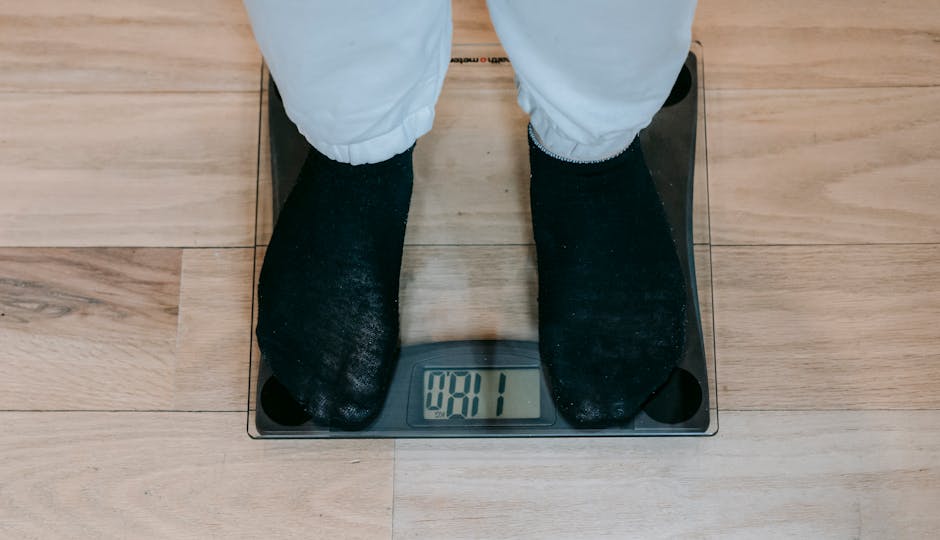Ever find yourself wondering why everyone keeps harping on about eating your greens and balancing your meals? Well, it turns out there’s a whole lot of good that comes from munching on a variety of foods. Stick around, and I’ll spill the beans on how a balanced diet can be a game-changer for your health.
Key Takeaways
- A balanced diet is crucial for maintaining heart health and reducing the risk of chronic diseases.
- Nutritious foods play a significant role in cancer prevention and mental well-being.
- Proper dietary habits support gut health, immune function, and effective weight management.
- Managing blood sugar and diabetes, as well as bone and dental health, is greatly influenced by diet.
- Quality sleep and the long-term health of future generations are also impacted by dietary choices.
Introduction to a Balanced Diet and Overall Health
Definition of a balanced diet
Imagine your body as a high-performance engine that needs the right kind of fuel to run smoothly. A balanced diet is just that—premium fuel. It’s a colorful mix of fruits, veggies, proteins, grains, and fats that your body needs to function at its best.
Overview of the impact on overall health
From your head to your toes, what you eat affects every part of you. It’s not just about dodging the doctor or fitting into your favorite jeans—eating right can boost your mood, sharpen your mind, and even help you sleep better. So, let’s dive into the nitty-gritty of how a balanced diet keeps you in tip-top shape.

Heart Health and a Balanced Diet
Reduction of heart disease risk
Your heart loves it when you eat balanced. Foods low in saturated fats, trans fats, and cholesterol keep it beating strong. Think fish rich in omega-3s, nuts, and loads of leafy greens.
Decrease in stroke occurrence
Whole grains and fiber are your allies in the fight against strokes. They’re like the body’s broom, sweeping away the bad stuff that can clog up your arteries.
Management of high blood pressure
Pass the potassium, please! Foods high in this mineral, like bananas and sweet potatoes, help keep your blood pressure in the chill zone.

Cancer Prevention Through Diet
Role of nutritious foods in reducing cancer risk
Antioxidants are the superheroes of the food world, battling it out against cancer-causing free radicals. Load up on berries, dark chocolate, and green tea to keep these villains at bay.
Specific types of cancer affected by diet
Breast, colon, and prostate cancers don’t stand a chance when you’re armed with a diet full of fiber, vitamins, and minerals. It’s like wearing a suit of armor made of salads and smoothies.

Mental Well-being and Dietary Habits
Connection between food and mood
Ever feel grumpy when you’re hungry? That’s because your diet directly affects your brain chemistry and emotions. Foods rich in omega-3 fatty acids, like salmon, can be mood lifters.
Impact on cognitive function and memory
Your brain is a hungry organ, and it craves nutrients like omega-3s, antioxidants, and vitamins found in nuts, seeds, and blueberries to stay sharp.
Dietary influence on mental health
A happy gut means a happy mind. Probiotics in yogurt and fermented foods keep your digestive system—and by extension, your mental health—in check.

Gut Health and Immune Function
Importance of fiber in diet
Benefits for digestive health
Fiber is the unsung hero of digestion, keeping things moving and reducing the risk of bowel disorders. Apples, oats, and beans are your go-to for a happy gut.
Prevention of constipation
Nobody likes to be backed up. A diet rich in fiber from whole grains and vegetables can help you avoid the discomfort of constipation.
Probiotics and their role in gut health
Enhancement of immune function
These friendly bacteria are like your body’s personal security team, guarding against invaders and keeping your immune system strong.
Maintenance of gut flora balance
A daily dose of probiotics from yogurt or kefir can help maintain the peace among the trillions of microbes in your gut.

Weight Management and Healthy Eating Patterns
Role of diet in weight loss
Calories in, calories out—it’s the golden rule of weight loss. But it’s not just about quantity; quality matters too. A balanced diet ensures you’re getting the right nutrients without overdoing it on the calories.
Importance of maintaining a healthy weight
Carrying extra weight is like lugging around a heavy backpack all day—it’s tough on your body. Keeping a healthy weight reduces the strain and lowers the risk of many diseases.
Strategies for healthy eating
Mindful eating, portion control, and choosing whole foods over processed ones are your best bets for a balanced diet. For more on this, check out how mindful eating can be a form of self-care.
Diabetes Management and Blood Sugar Regulation
Balanced diet for blood sugar control
Steady as she goes—that’s how you want your blood sugar levels. Whole grains, lean proteins, and healthy fats help keep the roller coaster at bay.
Dietary adjustments for diabetes management
If you’re juggling diabetes, a balanced diet is key. It’s like finding the perfect rhythm in a dance, keeping your blood sugar levels in sync with your body’s needs.

Bone and Dental Health Through Nutrition
Calcium and vitamin D intake
Strong bones and teeth need calcium and vitamin D like a plant needs sunlight. Dairy, leafy greens, and fortified foods are your best friends here.
Other nutrients essential for bone and teeth strength
Magnesium, phosphorus, and vitamin K also join the party to keep your skeleton sturdy and your smile sparkling.
Sleep Quality and Diet
Nutrients that aid sleep
Tryptophan, magnesium, and calcium are like nature’s lullaby, helping you drift off to dreamland. Find them in almonds, cheese, and greens.
Dietary patterns that promote quality sleep
A light evening meal with complex carbs, a little protein, and some healthy fats sets the stage for a night of sweet slumber.
Influence of Parental Diet on Future Generations
Impact of caregivers’ dietary patterns on children
Little eyes are watching, and they’re learning from your plate. A balanced diet sets a healthy example, paving the way for the next generation’s eating habits.
Long-term health implications for future generations
The seeds of health are planted early. What you eat can affect your kids’ health down the line, from their risk of chronic diseases to their overall well-being.
Practical Dietary Advice for a Healthy Lifestyle
Incorporation of fruits and vegetables
Aim for a rainbow on your plate. The more colors, the better the variety of nutrients you’re getting.
Fat intake management
Not all fats are foes. Embrace the good ones like avocados and olive oil, and keep the bad ones at bay.
Reduction of salt, sodium, potassium, and sugars
Shake the salt habit, cut the candy, and watch your health soar. For more tips on a balanced approach to nutrition, check out why it’s important to have a balanced approach to nutrition.
Eating right isn’t just a fad—it’s a lifestyle that can lead to a longer, happier life. So, next time you’re about to grab a bite, remember that your choices don’t just satisfy your hunger—they shape your health.
Nourish Your Knowledge: The Impact of a Balanced Diet on Overall Health FAQ
What is a balanced diet?
A balanced diet is one that provides all the necessary nutrients your body needs in the right proportions. This includes a mix of carbohydrates, proteins, fats, vitamins, minerals, and water. Ideally, it should consist of a variety of foods from all the major food groups: fruits, vegetables, grains, protein sources, and dairy or alternatives. A balanced diet supports the body’s functions, promotes good health, and can prevent nutrition-related diseases.
How does a balanced diet benefit overall health?
A balanced diet benefits overall health by enhancing the immune system, maintaining healthy body weight, improving heart health, and reducing the risk of chronic diseases such as diabetes, hypertension, and cancer. It also contributes to better mental health, increased energy levels, and improved digestion.
Can a balanced diet help with weight management?
Yes, a balanced diet plays a crucial role in weight management. By providing the body with the right amount of calories and nutrients, it helps maintain a healthy weight. Portion control, along with a mix of nutrient-dense foods, can prevent overeating and help in both weight loss and weight maintenance efforts.
What are the consequences of not following a balanced diet?
Not following a balanced diet can lead to malnutrition, which includes both undernutrition and overnutrition. This can result in a weakened immune system, increased susceptibility to diseases, stunted growth in children, and conditions like obesity, heart disease, and type 2 diabetes in adults. It can also lead to deficiencies in essential vitamins and minerals, impacting overall health and well-being.
How does a balanced diet affect mental health?
A balanced diet affects mental health positively by providing the brain with the necessary nutrients to function correctly. Nutrients like omega-3 fatty acids, antioxidants, vitamins, and minerals can enhance cognitive functions, mood, and reduce the risk of mental health disorders such as depression and anxiety.
Is it possible to have a balanced diet on a budget?
Absolutely, having a balanced diet on a budget is achievable. It involves planning meals, buying whole foods in bulk, choosing seasonal produce, and minimizing waste. Cooking at home and being mindful of portion sizes can also help manage food expenses while ensuring nutritional needs are met.
How important is hydration in a balanced diet?
Hydration is a critical component of a balanced diet. Water is essential for nearly every bodily function, including digestion, absorption, circulation, and temperature regulation. It also helps to transport nutrients and oxygen to cells, and it’s necessary for the kidneys and other bodily processes. Adults should aim to drink at least 8 glasses of water per day, more if they are active or live in hot climates.
Can dietary supplements replace a balanced diet?
Dietary supplements are not a replacement for a balanced diet. They are intended to supplement the diet when certain nutrients are lacking or when an individual has a higher need for a specific nutrient. However, the best way to obtain nutrients is through a varied diet, as foods provide a complex matrix of vitamins, minerals, dietary fiber, and other substances that contribute to health.
What role does a balanced diet play in children’s growth and development?
A balanced diet is crucial for children’s growth and development. It provides the necessary nutrients that are essential for physical growth, brain development, and bone health. Adequate nutrition during childhood can also influence long-term health outcomes and may reduce the risk of developing chronic diseases later in life.
How can one start transitioning to a more balanced diet?
Transitioning to a more balanced diet can begin with small, manageable changes. Start by incorporating more fruits and vegetables into meals, choosing whole grains over refined ones, and selecting lean protein sources. Gradually reduce the intake of processed foods, sugary drinks, and high-fat snacks. It’s also helpful to plan meals and snacks in advance to make healthier choices more accessible.



